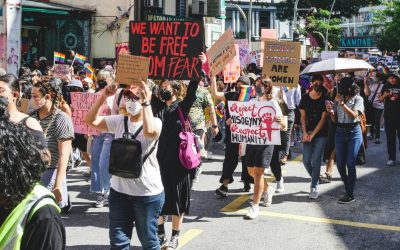On the 6th of February CESIE celebrates the International Day of Zero Tolerance to Female Genital Mutilation (FGM). FGM is recognised at international level as a violation of human rights. Unfortunately, according to the World Health Organization, more than 125 millions women are victims of FGM and 3 million girls are still at risk every year. This practice is still quite widespread especially in several countries of Africa, but also in Asia, Middle East and Europe (around 500.000 of girls and women in the EU are at risk of FGM). Even if the prevalence of FGM is reducing in some countries, it’s still a long process and varies according to the different communities. However, FGM is forbidden and punishable by legal proceedings in 42 countries, including the majority of EU countries.
This International Day aims at raising awareness about FGM and at promoting the eradication of those practices which violate the rights of girls and women, for their physical and mental integrity. The EU asserts its commitment to eliminate FGM and all forms of violence against women, through different programmes of awareness, information and training (such as the Daphne Programme). Furthermore, the United Nations develops a programme, United Nations Volunteers (UNV), in order to mobilise local communities to eliminate FGM though community based approaches.
How does CESIE contribute?
SuniaGeel 2 – Take care of yourself
The Project provides an increased understanding of the needs of users of social services, thus creating the possibility of an improved response. It is critical that women are encouraged to be informed and to make safe choices for themselves and their children. The incidence of domestic violence will be reduced by promoting a zero tolerance approach within marginalized communities and amongst those delivering social services to ethnic minorities.
Replace 2: A new approach to end FGM
The project is designed to end the practice of FGM by continuing with the research and the actions developed in the first Replace project that has resulted in the “Pilot Toolkit for Replacing Approaches to Ending FGM in the EU: Implementing Behaviour Change with Practising Communities”. Replace 2 is being implemented through a community based participatory approach with FGM affected communities of the United Kingdom, the Netherlands, Italy, Spain and Portugal. Research-action through focus groups, interviews and interventions at community level has the aim to contribute to a behaviour change towards the FGM practice. As a result of the experience in different countries and with different FGM practising communities, the partnership will enrich the final version of the Toolkit that can become a self-sustaining tool to be used across the EU.
Next week, the Eritrean and Ethiopian researchers involved in project development by CESIE in Palermo, will organise a morning of debates about the topic of FGM with the students of the high school Regina Margherita of Palermo. It will be an occasion to facilitate a reflection and raise awareness among youngsters about FGM but also to reflect about broader issues such as migration flows, different cultural practices and values.
Facebook page: facebook.com/Replace2
Subscribe to our newsletter through our website: replacefgm2.eu









